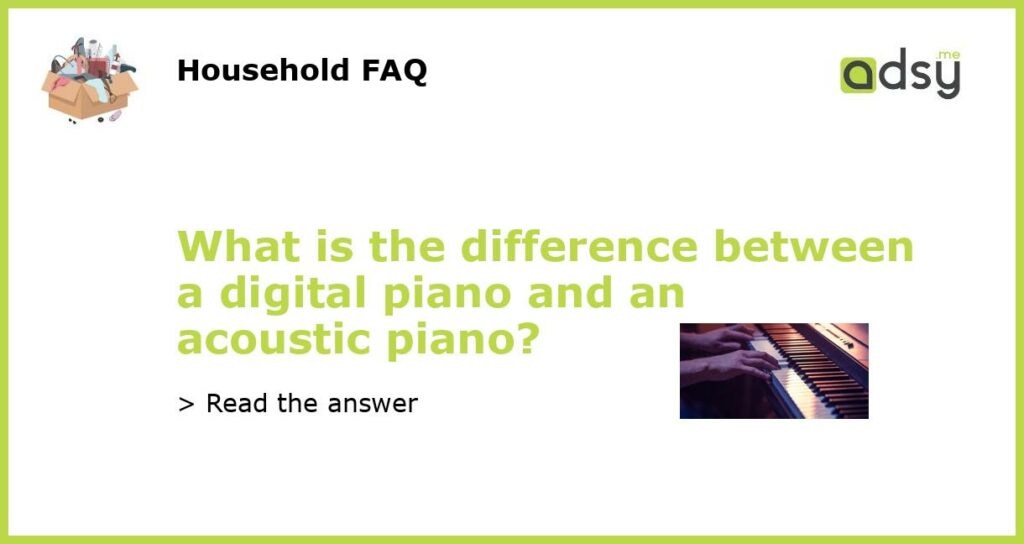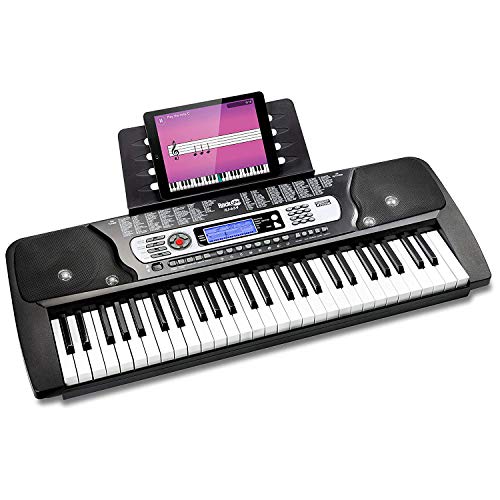The Difference Between a Digital Piano and an Acoustic Piano
Choosing between a digital piano and an acoustic piano can be a tough decision for musicians, especially those just starting out or looking to upgrade their current instrument. While both types of pianos have their own unique qualities and benefits, there are several key differences that can help you make an informed decision. In this article, we will explore the differences between digital pianos and acoustic pianos to help you understand which option is best for your needs.
Sound Quality
One of the most significant differences between digital pianos and acoustic pianos is the way they produce sound. Acoustic pianos create sound using physical mechanisms, such as hammers striking strings, which produces a rich and resonant tone. On the other hand, digital pianos use sampled sounds or synthesized tones to replicate the sound of an acoustic piano. While digital pianos have come a long way in terms of sound quality, they often struggle to match the depth and nuance of an acoustic piano. However, high-end digital pianos can come close to replicating the sound of an acoustic piano, making them a suitable option for many musicians.
Maintenance and Upkeep
Maintenance and upkeep are important considerations when choosing between a digital piano and an acoustic piano. Acoustic pianos require regular maintenance, including tuning, voicing, and regulation, to keep them in optimal playing condition. This can involve the services of a professional piano technician, which can be expensive over time. On the other hand, digital pianos require minimal maintenance, if any at all. They do not need tuning and typically only require occasional cleaning and software updates. This can make digital pianos a more convenient and cost-effective option for those who do not want to deal with the ongoing maintenance of an acoustic piano.
Portability and Space
Another key difference between digital pianos and acoustic pianos is their portability and space requirements. Acoustic pianos are large and heavy instruments that require a dedicated space in your home. They are difficult to move and transport, making them less suitable for musicians who need to frequently travel or perform in different locations. On the other hand, digital pianos are lightweight and portable, allowing you to easily transport them to gigs or practice sessions. They also take up less space, making them a practical choice for musicians with limited room in their homes or apartments.
Features and Technology
Digital pianos offer a wide range of features and technology that can enhance your playing experience. They often come with built-in metronomes, recording capabilities, and a variety of sounds and voices to choose from. Some digital pianos even have headphone jacks, allowing you to practice quietly without disturbing others. Additionally, digital pianos can be connected to computers or external speakers for a more immersive sound experience. Acoustic pianos, on the other hand, do not offer these advanced features, but some musicians prefer the simplicity and authenticity of playing on a traditional acoustic instrument.
Cost
Lastly, cost is a crucial factor to consider when choosing between a digital piano and an acoustic piano. Acoustic pianos are typically more expensive than digital pianos, especially when considering high-quality grand pianos. In addition to the initial purchase cost, acoustic pianos require ongoing maintenance, tuning, and repairs, which can add to the overall expenses. Digital pianos, on the other hand, come in a wide range of price points, making them more accessible to musicians on a budget. While high-end digital pianos can still be quite expensive, they generally require less maintenance and can be a more cost-effective option in the long run.
Ultimately, the choice between a digital piano and an acoustic piano depends on your personal preferences, playing style, and budget. Consider the factors mentioned above and try out different pianos to determine which one feels and sounds right for you. Whether you choose a digital piano or an acoustic piano, both can provide years of musical enjoyment and improvement.






